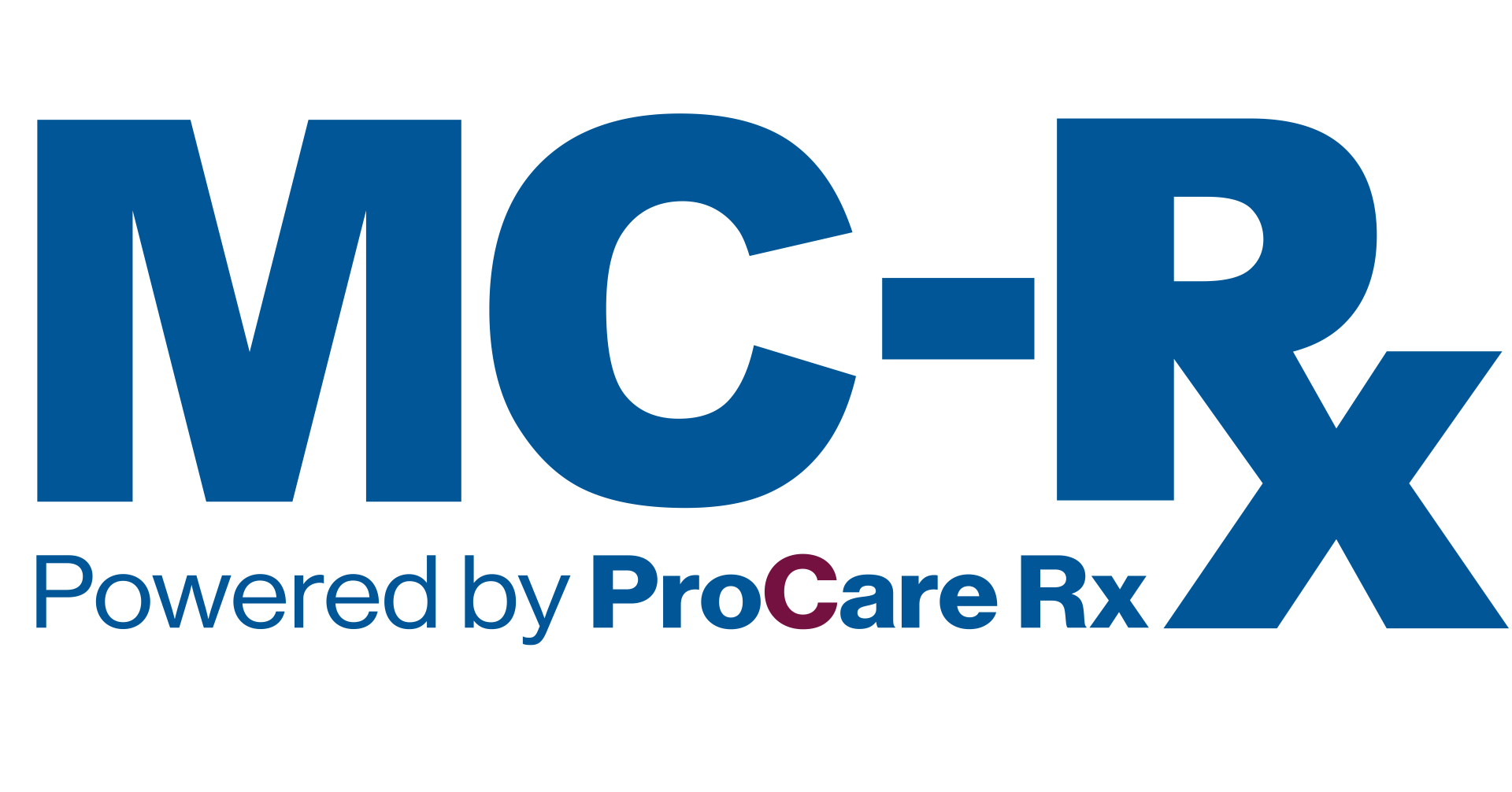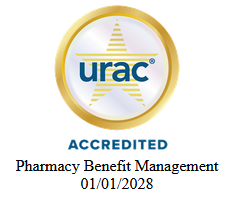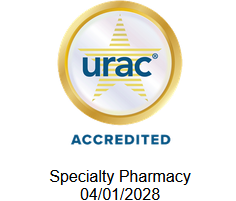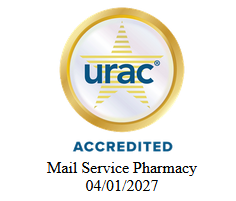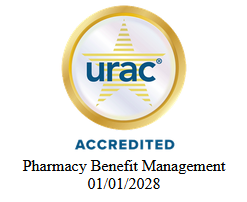A NOTE FROM THE CEO
November 11, 2020
HOW DOES MC-RX CHALLENGE THE WELL-ESTABLISHED PBMS IN THIS COMPETITIVE MARKET?
Our company's growth is driven by our technology, direct contracts, and over 20 years’ of experience in pharmacy benefit management, combined with the agility and ability to develop, market, and deliver innovative programs against much larger, well-funded competitors.
As the industry rapidly rolled up through mergers and acquisitions, the small- and medium-sized self-insured employers and health plans became second-class citizens to those larger competitors. We chose to go directly to those customers to offer contracts, services, and technology equivalent to or better than those offered by the larger PBMs. Based upon our lean infrastructure and collaborative client approach, we are able to provide this offering customized to client requirements at a reduced price to allow them to control their costs and the healthcare outcomes with no hidden costs and absolutely no “shell games”.
"Small health plans currently contracted with one of the large PBMs may find themselves effectively working with, and selling against, their larger competitors, as the PBM may be owned by a large insurance company or drug store chain. Why would anyone want to contract with a competitor for one or more core services when they have a better, faster, cheaper, and customizable option provided by an independent partner with no conflicts of interest?" asked Roger Burgess, Chairman of MC-Rx.
“Another significant value that MC-Rx provides to our customers is the superior quality of our services compared to other solutions,” Burgess added, “Everything that we do is targeted to provide the client with what they need to create and manage plan designs focused on saving money and improving the health of their members. Since we own all the contracts and the technology, we can always customize the platform to a client’s individual needs.”
When a client contracts with MC-Rx, they can be assured that all plans are 100% tested against existing claims before the new plans go into production. Some competitors may only do spot-claim type testing versus the comprehensive regression testing we perform against all recent claims, which allows our clients to know the overall cost and member disruption impact before going into production.
Transitioning to a new platform is stressful, and this level of extensive testing creates peace of mind, as well as providing an advanced claim level confirmation of cost savings.
WHAT ARE SOME OF THE BIG CHALLENGES MC-RX IS FACING?
Brokers and consultants sometimes consider it "safer or easier" to recommend that their clients purchase the services from one of the big PBMs instead of digging into more customized service offerings designed specifically for the client that may also generate additional cost savings. We have worked with hundreds of these intermediaries to show them the opportunities that MC-Rx can offer them for their clients.
Additionally, we see larger insurers that are contracting with self-insured payers as their Administrative Services Organization (ASO), either blocking them from carving out pharmacy benefits or raising the administrative fees to dissuade the plan sponsor from making a change. As justification, they maintain that they can manage members better when the data is integrated. In most cases, their pharmacy data and their medical data are in two separate systems and all “integrations” happen after the fact, not in real-time. We share data openly with brokers, ASOs and Third Party Administrators (TPAs), and we can provide the data, in compliance with all regulatory requirements, in near real-time.
As we work with brokers and TPAs, we show them and the plan sponsors that these moves should flag the hidden profit margins those larger insurers may retain from the pharmacy side of the employee medical plan equation. We have several case studies showing that mid-sized employer groups were able to transition from a fully insured arrangement to a self-insured arrangement, realizing over 30% in annual cost savings from the pharmacy spend alone.
WHAT ARE THE BIG OPPORTUNITIES YOU SEE IN THE MARKETPLACE?
Prescription drug spending in the U.S. is in the hundreds of billions of dollars and continues to grow as our population ages and new drugs enter the market. MC-Rx’s innovative clinical and member service offerings, customizable networks, direct contracts, and extensive experience allow us to be responsive to our clients' needs: to help them solve problems, optimize their drug lists and pharmacy network, and identify ways to help them manage their costs and their members’ health outcomes.
As one of the few truly independent PBMs left in the marketplace today that own their own direct contracts, clinical services, and technology and currently serves millions of members, MC-Rx should be a clear choice.
About MC-Rx: ProCare Pharmacy Benefit Manager Inc. acquired MC-21, LLC in 2018 and created MC-Rx by combining the two Pharmacy Benefit Managers (PBM). Each of the PBMs have over 20 years’ experience serving Employers, Medicare Health Plans, Medicaid Health Plans, City, County, and State Government organizations, Unions, Workers Comp intermediaries, and other payers of prescription drug benefits. For more information about MC-Rx products and services, please contact PublicRelation@mc-rx.com or sales@mc-rx.com.

Understanding GLP-1 Medications The landscape of obesity management is evolving, with GLP-1 receptor agonist (RA) medications emerging as a significant player. These FDA-approved drugs have proven effective in helping individuals lose weight, prompting a shift in how they are viewed and covered by health plans. However, the cost implications and strategic decisions surrounding these medications require careful consideration by employer groups and their members. The Case for GLP-1 Medications GLP-1 RAs, originally developed for diabetes management, have shown remarkable efficacy in weight loss. With the growing prevalence of obesity and its associated healthcare costs, there's increasing pressure on health plans to cover these medications. Despite their high cost—annual retail pharmacy expenses can exceed $10,000 per patient—GLP-1 RAs offer potential downstream savings by reducing obesity-related comorbidities such as diabetes, hypertension, and cardiovascular disease. Balancing Coverage and Cost Historically, weight loss medications were deemed "lifestyle" drugs and excluded from coverage. However, the rising popularity of GLP-1 RAs and their demonstrated benefits are challenging this perspective. For plan sponsors, the decision to cover these medications involves balancing the high upfront costs with the potential for long-term savings on medical expenses related to obesity. Cost-Containment Strategies For payers choosing to cover GLP-1 medications, several cost-containment strategies can be employed: Formulary Management : Deciding on the placement of these medications within the formulary is crucial. Options range from not covering the drugs to placing them on a high-cost tier with patient cost-sharing. Prior Authorization and Step Therapy : Implementing these measures ensures that only patients with a proper diagnosis (e.g., ICD-10 code for obesity) access these medications, preventing misuse and overutilization. Prerequisite Programs : Requiring participation in wellness or nutrition programs before approving weight loss medications can encourage lifestyle modifications that complement pharmacological treatment. Specialist Restrictions : Limiting prescriptions to weight loss specialists, such as bariatric doctors or endocrinologists, ensures appropriate therapy and monitoring. Duration Limits : Establishing treatment guidelines, such as discontinuing medications if a target weight loss is not achieved within six months, helps manage long-term costs. The Role of Brokers and Employer Groups Brokers play a pivotal role in guiding employer groups through the complexities of covering GLP-1 medications. Understanding the cost-benefit dynamics and available cost-containment strategies enables brokers to provide informed recommendations that align with their clients' financial and health objectives. Employer groups, in turn, must weigh the potential benefits of covering these medications against their budgetary constraints and the overall well-being of their workforce. Member Education and Engagement Effective communication with members is essential to ensure they understand the coverage options and adhere to prescribed treatments. Educational initiatives can include: Patient Communication Programs : Providing information on medication adherence, compliance, and lifestyle modifications. Continuing Education : Ongoing programs to keep members informed about the benefits and proper use of weight loss medications. Monitoring and Support : Utilizing pharmacy and medical data to track outcomes and adjust strategies as needed. Balance the Scale with Expert Guidance from MC-Rx The adoption of GLP-1 medications for weight loss represents a significant advancement in obesity management. However, the high costs associated with these drugs necessitate careful planning and strategic implementation by brokers, employer groups, and members. By employing robust cost-containment strategies and prioritizing member education, health plans can navigate the financial challenges while delivering meaningful health benefits to their populations. MC-Rx, as a full-service pharmacy benefits manager, offers the expertise and tools to help clients optimize their coverage decisions and manage the complexities of incorporating GLP-1 medications into their health plans. Here are just a few of the GLP-1 strategies we use to shield our clients from excessive costs: Implementation of Drug Management Tools, which is critical to ensure proper utilization for GLP-1s. Strategic Benefit Design, which also protects clients from improper GLP-1 utilization. Clear Member Communication, which is crucial for proper adherence and compliance. When implemented with an existing client, the above-listed strategies helped them achieve $382,000 in cost avoidance for GLP-1s. With the right approach, the benefits of these medications can be realized, contributing to better health outcomes and potentially lowering overall healthcare costs in the long run. For more information on managing GLP-1 medications and other pharmacy benefits, reach out to an MC-Rx expert today .


